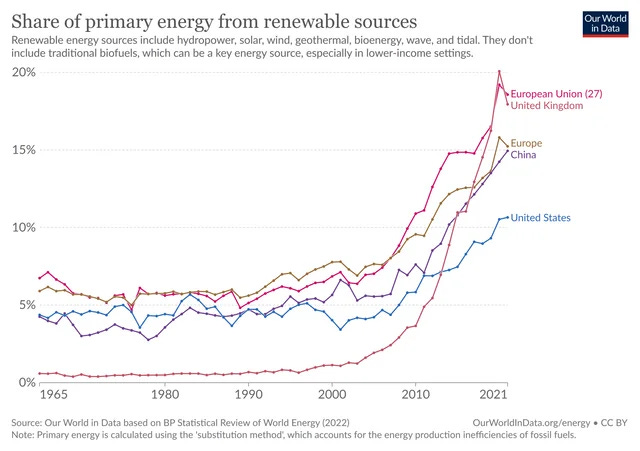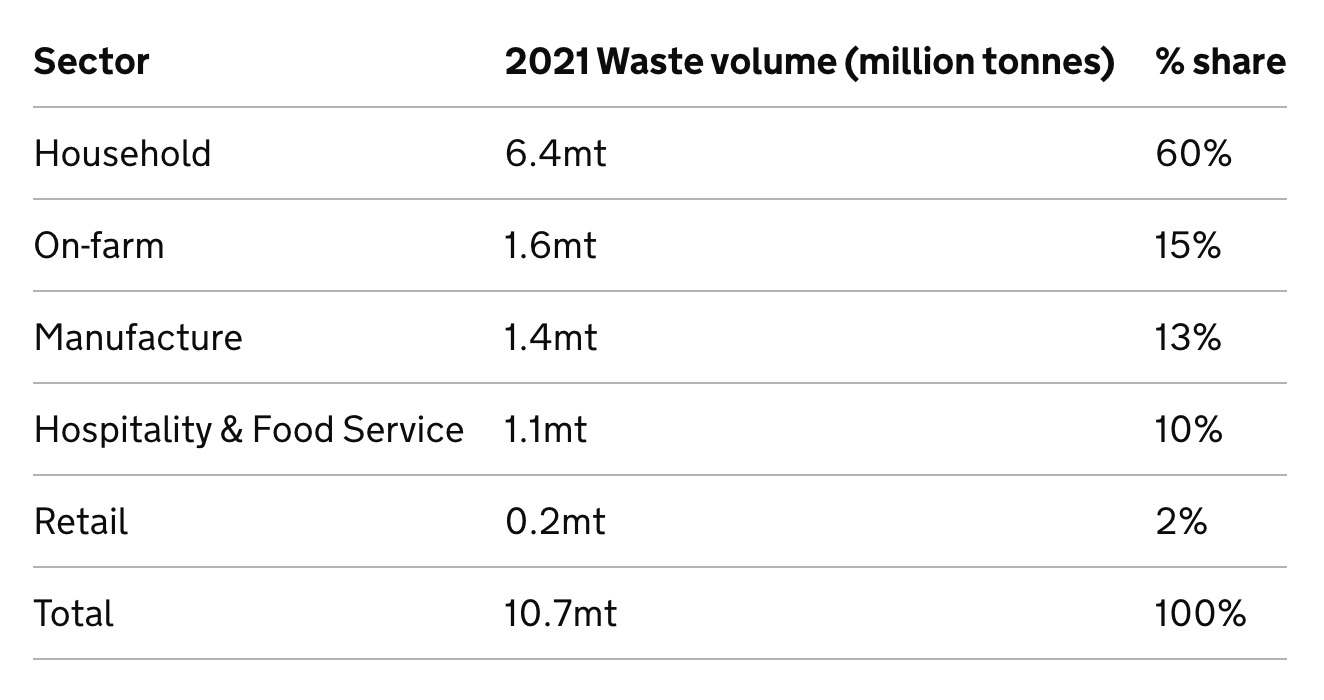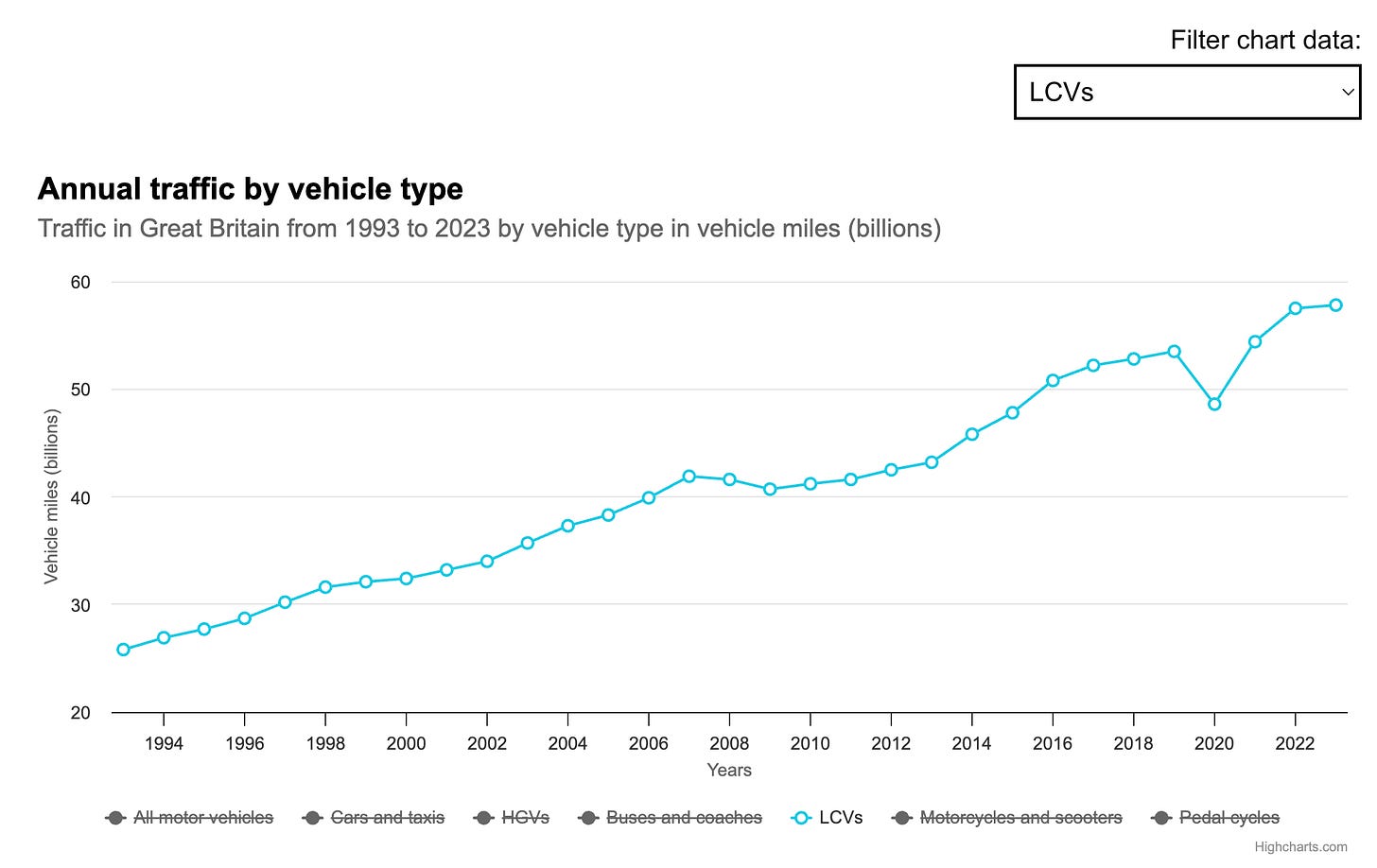You can bet against hype, but you can’t bet against progress
Issue 118 l Eka’s Weekly Roundup (15 April 2025)
Last year, Bloomberg ran a podcast titled the Big Climate Short. The summary is that hedge funds were increasingly taking short positions in ‘climate’ companies, which highlighted a shift away from climate optimism to climate pessimism.
Since then, several high-profile climate companies in Europe and the US have faced challenges, fueling this pessimistic outlook.
This scepticism overlooks a basic point: there are unique models which unlock 1) value to buyers and 2) environmental value in tandem. There are many examples where this is possible including companies like Axle Energy, Hived, and UseAgain.
In this edition, we’ll explore how three markets - energy, food, and logistics - are being disrupted by Shared Value models, leading to improved efficiencies and better customer experiences.
At Eka, we are big believers in exactly this: founders leveraging technology to drive delightful consumer experiences by reducing waste. We’re actively deploying across Sustainable Consumption and would love to speak to you if you want to debate, pitch, or share your ideas with us.
Unlocking delightful customer experiences and reducing unnecessary waste
Energy: home electrification, mobility, and ancillary
Utility-scale solar and onshore wind have continued their exponential decline in costs. There have been a few bumps in the road due to supply chain challenges post Covid-19, but these technologies are now more accessible than ever to the commercial & residential markets.
Renewable energy has rapidly increased across key developed markets. The UK now has c.18% of its energy (DSNZ data has this loser to 40%+ for the UK). Last year, UK renewable generation was a record 145 TWh, up +7% from the previous year. This was driven by new capacity more than offsetting less favourable weather conditions (i.e. low wind).
This new electrified world requires novel products & services to help 1) manage electrification in the home, 2) help improve EV deployment in a strained grid, and 3) many, many other services including grid connectivity and energy trading.
Food: waste, portion sizes, and fridge tracking
30% of food is wasted in developed markets across the home, retailers, and producers. In the UK, the majority of this is wasted in households (60% of the total wastage), which is 3x larger than the second highest volume channel (on-farm).
We are spending more on food & drink on an absolute basis (note the data only covers to Covid times) and have wasted ‘less’ proportionally than we have in previous years. But on the whole, we are still wasting a significant amount of our food which has both an environmental and financial impact on our wallets.
Food has gotten cheaper relative to earnings (note we didn’t look at the underlying basket of goods for what determines the food price index - but this will be important to understand substitute effects). Inflationary pressures meant that after a dip in ‘21, the share of spend on food prices did go back up relative to our overall wallet. Making sure we don’t waste this spend is important.
Reducing waste requires technology-led approaches to help us 1) better portioning our meals and 2) better plan our meals around existing constraints.
Logistics: deliveries, reverse logistics, and air quality
Logistics account for 7% of global greenhouse gas emissions. For comparison, electricity generation is 23% and buildings is 8%. A large part of this comes from road freight (51% of total) which is split into light commercial vehicles (40% of total) and trucks (11% of total).
LCVs are one of the only growing segments in annual traffic in the UK. By contrast, cars and taxi trips have actually decreased in the similar time frame. A lot of this traffic has been due to inner city parcel delivery to support the rise of e-commerce in the UK. Many of these vehicles are ICE rather than EV today.
Improving logistics across LCVs and broader logistics requires technology-led approaches to help us 1) transition the LCV fleet from ICE to EV and 2) start to change our consumption model from linear to circular, enabled by reverse logistics.
Don’t be shy - let us know if you have any feedback, suggestions for alternate data, or strong agreements & disagreements.
✍🏽 Week in Impact Articles
Monday: Ranked: Where Living Standards Are Rising in Europe (2014–2024)
Tuesday: Oil sputters in Trump’s race to ‘energy dominance’
Wednesday: DHSC announces creation of £600m Health Data Research Service
Thursday: Parent or not: finding networks of care
Friday: Lessons from the happiest countries in the world
👋 Getting in Touch
If you’re looking for funding, you can get in touch here.
Don’t be shy, get in touch on LinkedIn or on our Website 🎉.
We are open to feedback: let us know what more you’d like to hear about 💪.













